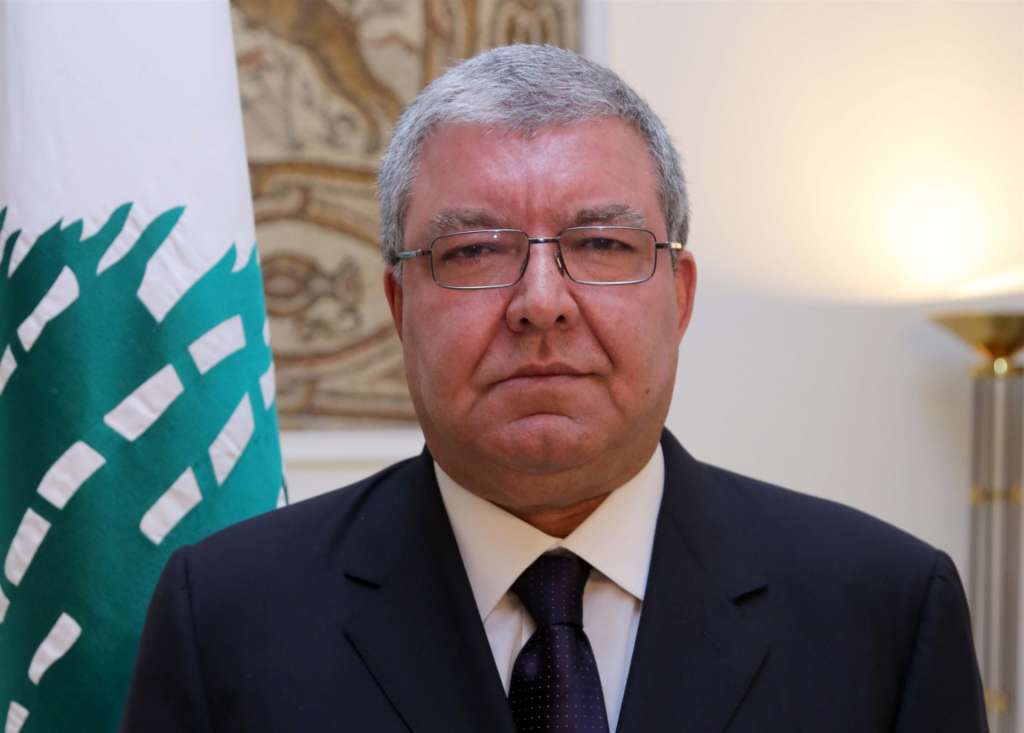Just because his movement lost in the latest municipal elections, he refuted Saudi Arabia’s history and major role it has played in his country during the past 10 years!
It is hard to believe that this person is Nohad Mashnouq, the Lebanese Minister of Interior and Municipalities, the Sunni who is loyal to Hariri stances!
All these denials were made only to justify his loss in the municipal elections!
Instead of taking responsibility for the loss in Tripoli to another Sunni, Ashraf Rifi, Mashnouq slammed Saudi Arabia and the late King Abdullah, blaming them for a rise in criticism against his ally Saad Hariri.
Regardless of any of these good values such as loyalty, chivalry and nobility, we expected from him at least some kind of integrity to the history.
I am certain that Mashnouq will not be able to convince the majority of Lebanese people, including the Sunnis, with his remarks against Saudi Arabia and its late king.
Saudi Arabia is almost the only country that has stood by Lebanon and supported Mashnouq’s political movement. Mashnouq is fully aware of reality and knows very well that Saudi Arabia is not to be blamed for Hariri’s retrogressions in the past few years. I suppose he was triggered by the emotions of the scandalous defeat in Tripoli.
King Abdullah is considered an important leader in the region, and I believe he will be remembered positively in Lebanon’s history.
He was one of the only leaders to stand by the country after it was targeted by the Syrian regime and its allies with assassinations, starting with the late Rafiq Hariri.
Despite what Mashnouq and other politicians have been saying, Paris and Washington have not played a decisive role in Lebanon, and Riyadh considers the Lebanese issue crucial and rejected many attempts to stop facing Assad’s regime.
Riyadh and King Abdullah played a crucial role in the Syrian army’s withdrawal from Lebanon, the issuing of U.N. Security Council resolutions, the establishment of the Special Tribunal for Lebanon (STL), and the support for the governments that were handled by March 14 leaders.
The Syrian regime and its allies Iran and Hezbollah sought to control Lebanon by assassinating its prominent leaders, especially after Israel’s withdrawal from the south.
Mashnouq knows that Saudi Arabia, and especially the late King Abdullah, could have only sent condolence letters for the assassinated families and left the Lebanese face their fates alone; usually things happen this way in the region. However, King Abdullah defended the Lebanese cause until his death.
Riyadh’s stance was presented by letting ally countries, such as Cairo, Washington, Paris, and Oman issue decisions against the Syrian presence in Lebanon and form diplomatic front to face Assad’s regime in the Arab League, United Nations, Europe, and the United States; those that lasted years at the diplomatic, legal, economic, security and media levels.
Syrian President Bashar Assad has tried hard several times, through many intermediaries, to convince Riyadh to abandon its stance and its allies. He even resorted to threats and insults against King Abdullah, but Riyadh continued supporting Lebanon and the March 14 movement.
In order to justify losing in the municipal elections, Mashnouq selected whatever he found appropriate to blame others without explaining tactic situations or the period when these situations had happened; including Hariri’s visit to Damascus, which was within the latter’s promises that Mashnouq agreed on at that time.
King Abdullah reacted firmly after this visit, yet this did not prevent the Kingdom from supporting Lebanon along the years of conflict.
Rivalry among Lebanese Sunni leaders is not new, yet it does not require accusing others to justify a defeat in the municipality.
In Lebanese politics, Sunni and Christian leaders reflect the diversity of voters, who do not feel condemned to external powers or to the sanctity of certain leaders as is the case in the Iran-dominated Shiite community.
Saad Hariri’s Future Movement should not justify its defeat, burn bridges and offend its allies for some marginal and illusory gains. Rather than offending the Saudis, the movement should work on the ground to regain people’s trust.
